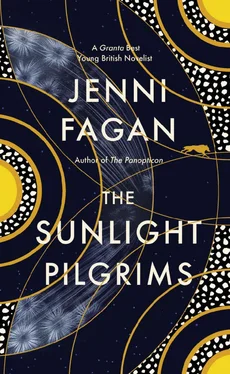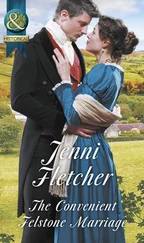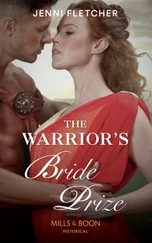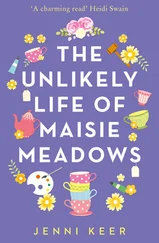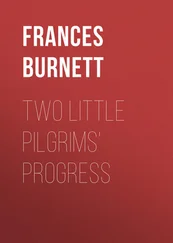Stella’s feet are cold and her fingers are numb and her heart is heavy.
There is hair on her lip and her voice is getting lower.
Her hair is in braids.
She doesn’t care any more what anyone thinks.
She is going to win this race.
All the caravans look like igloos lately. The Inuit in her and the wolf in her mother will keep them wily enough to survive. If it is possible. If they can. Stella stops right in the middle of the line of kids and positions her sledge.
— You racing then, Stella?
— Looks like it.
Lewis with his frizzy hair and his wide smile.
— Think you’re going to win?
— I will, if you keep holding your sledge like it’s a skateboard, Lewis.
He has it down on the snow, one foot on it.
— I’m going down standing up, are you? he asks.
— Always.
— Do you want to come over to mine later, I’ve got a new computer game?
— No, thanks, she says.
— You should come over. It’s a really amazing game, he says.
— Yeah? Why don’t you draw me a picture?
— I did say sorry for that, he says.
— Did you?
— Hey, Stella, are you going down standing up? another boy shouts over.
— Same as last year!
The kids are tense. It only takes one bump, one rock, one wrong fall and your neck’s broke, or probably just your arm or even a wee finger, and that has happened before, they’ve all seen it — but you don’t know which one it will be if something breaks, that’s the thing. It could be irreparable. She still feels a bit fuzzy from them testing her blood and saying she’ll be okay and flushing the tablets away, and she has had enough of worrying what someone else might notice about her body and bring her up short on.
This is her.
So what if they don’t get it?
The little kids are all sitting down on their sledges, throwing snow at each other because they are amateurs and they don’t care yet, but the older ones are clapping their hands together and checking out each other’s sledges and getting ready to go. Lewis glances over at her and smiles again. He is so irritating. Stella looks down the farmer’s field, which is such a steep slope that most people stumble even when they are walking down it in the summer. The snow is powdery on top but packed dense underneath, so they’ll be able to go about as fast as they can handle. Once the sledges speed up, you can’t slow them down unless you go sideways and then you are risking a spin, or you can use your arms or your legs or just throw yourself off the side.
It often comes to that.
Speed doesn’t scare her.
All around her kids are saying things and making jokes and throwing snowballs, and Lewis is talking to another girl, so she steps onto her sledge and settles so she is perfectly balanced standing up. She pulls the reins in, getting ready to go. The rest of the kids begin to line up and put on gloves and scarves and take selfies with their friends, and one of the girls from the estate has a selfie-stick and Stella has to resist the urge to take the thing off her and beat her over the head with it. Someone has been appointed the gunman at the end.
All this winter she has been changing.
Things she used to be afraid of don’t seem scary any more.
Most of the other kids look nervous and about half of the row are not standing up, but the rest of them do and the older ones like her are kind of feared by the younger kids, and they are all watched by the ones on the side who won’t even ride the slope sitting down, cos it’s too dangerous. There are only five of them standing up. Stella flexes her knees and waits for the rest to organise themselves. The girl with the tin tray and her friend with the thick plastic sack are getting ready to push off with the backs of their hands. Stella adjusts her hat so it is right down around her ears and tightens her scarf. The farmer’s truck is parked down at the back field and it gives her a bad omen. Last year Tabitha the Fanny’s cousin broke his leg going down standing up, and they couldn’t get an ambulance anywhere near here because the snow was bad last year as well; they ended up carrying him out on a grain sack pulled tight over a pallet. Right up the top of the mountain she gets a glimpse of two familiar-looking shapes making their way down and then someone calls out.
— READY!
The ground is hard underneath her sledge.
— STEADY! STEEEAAADY!!
Stella bends loosely at the knees, holding her reins just firmly enough to keep her upright.
— ONE, TWO, THREE, GO!
Just one dip at the knees and tilting the toboggan over the edge, and the world whizzes around her — two kids are rolling down the slope already, with empty sledges flying in front of them. Stella half-kneels down over a jump and the plastic-sack girl is on her side; the tin trays are right out in front and she holds her elbows in and her head down and gains speed.
Fields sparkle.
A roar.
The wind.
Her heartbeat.
Kids shouting and screaming.
Someone on a bigger sledge catches up with her for a second and then she is out in front of everyone — the world a blur on either side of her, she is going so fast — faster — faster — if she falls now, she’ll break her neck for sure, but no time — flying. The doors of the barn at the bottom of the hill are being hauled back and the farmer is letting the cows out so that they charge up the hill toward her and she can’t stop now!
She holds on tighter.
Kids fall left and right from their sledges and run, as cows thunder up the slope.
It is way too late for Stella to slow — she grips the high sides of her toboggan, while the roar of cows’ hooves thunders right toward her and a brown and white blur. If this is the day she dies, then they’ll all know she was braver or crazier than any of them — remembering when she was little and the big kids in the caravan park put her in an old-fashioned pram and pushed her off the steps for fun; they bumped her all the way down. And last year she sat on the back of the gala-day lorry with crêpe paper made into a flower-skirt and a flower-band for her hair, and that was the first year she went out dressed as a girl; and she’d put a bed sheet in their garden, place rocks on it to hold it onto the top of their porch steps, then pull it out as far as it would go and she’d climb into her tent and eat cheese sandwiches and read books, and the sun would warm it up and she’d make daisy chains and go to the park and climb the monkey bars and in the summer they all stoated around on stilts. Caleb made her the stilts and sat on their porch teaching her guitar. He always has wrinkled clothes and crooked teeth and a great smile, and he used to make home-made pizza for her and Constance. She hopes he comes to visit soon. Oddly she thinks he and Dylan would get along. He picked her up once, after she’d been running so fast she fell on the tarmac slope outside on the car park and skinned both her knees skidding along the floor, and that summer the sun was so hot she got water-blisters on her shoulders and would jump in and out of her friends’ paddling pools, and they’d often skid where it was hard on the ground underneath and fall and get big black-purple bruises on their legs and she would press them when she was watching television, or pick at her scabs, and at night she’d crawl under the covers and read by the light of her torch and they’d pick rhubarb out of gardens and dip it in sugar to eat. She hasn’t seen that woman in the donkey-jacket again who told her about those pilgrims, but whenever there is light in any way in life she’s stashing it away like a magpie — drinking it orange to grey — and this must be how it is when your life flashes in front of you, and she grips onto the front of her sledge totally out of control again, and it is only a few weeks since she started to feel better from the last brush with death and she can see herself when she was little jumping off the cliffs of mulched paper, an imprint of light in the air and the thunder of hooves pounding all around her, and closing her eyes and only opening them when the blur of cow legs is gone and her sledge is skidding in circles across the frozen burn.
Читать дальше
